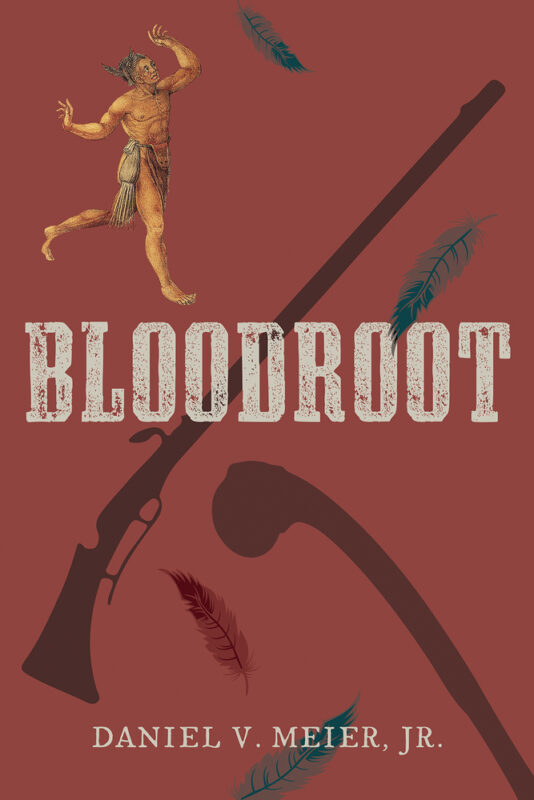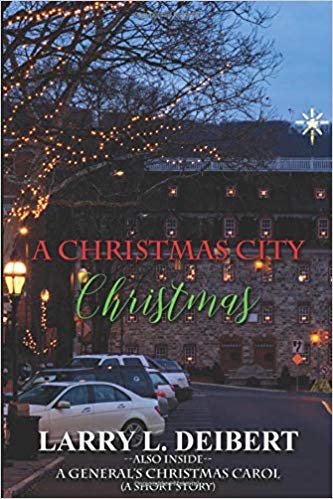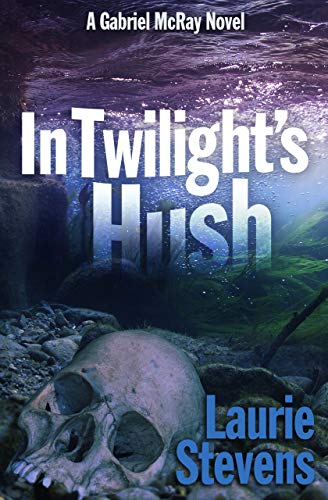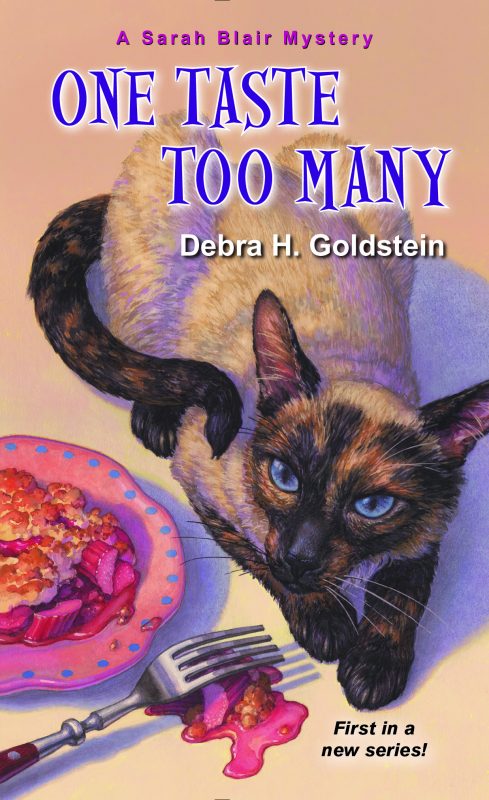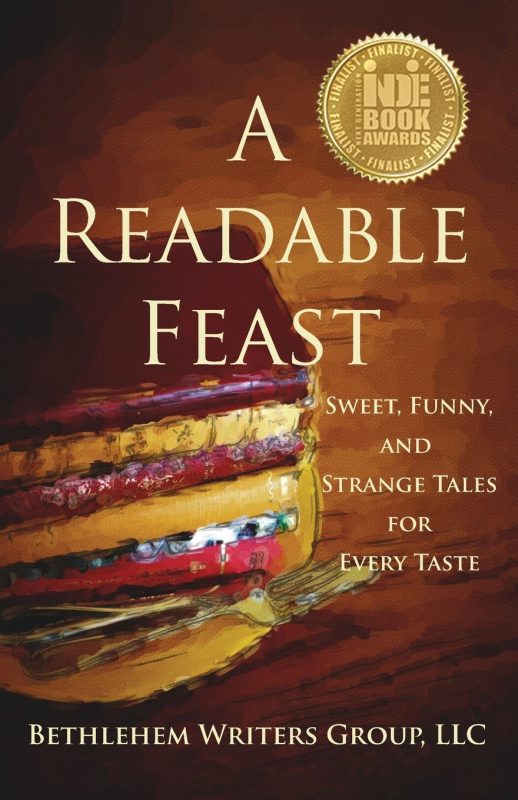A Funny Thing Happened on the Way to Getting Published
December 9, 2011 by A Slice of Orange in category Archives tagged as It's Worth ItI posted this last week on Dark Side Down Under, a blog I belong to in Australia with lots of paranormal writers. I wanted to share it with my OCC friends, too. 🙂
When it comes to romantic comedies, I don’t know if I loved them and so saw my life as one, or if my crazy adventures with John have spurred on a love of the same in fiction. In any case, my first novel, Little Miss Lovesick, certainly has aspects of art imitating life. The heroine Sydney (named long before I dreamed of visiting Australia) wants nothing more than a lifetime of true love. When things don’t work out, she’s determined to do whatever it takes to fix the situation, but every attempt seems to only create more problems.
Oh my gosh, that was so me! After a short but disastrous stint trying to find meaning for my life as a U.S. Marine, I went back to college and decided to forget a higher purpose. All I wanted now was a husband and a boring career. Safety. But the man I was determined to have (at age 19) was not interested in pursuing me. My roommate had his attention. My friend across the hall definitely caught his eye. But not me. No worries. I’d simply keep pursuing him until he realized what a great catch I was! And what lengths I went to!
If you’re laughing, you understand why I write romantic comedies. Even when I’m making things up about pretend people, I can’t help but pull from experiences in my real life. I love to laugh, and John and I both tend to do whatever it takes to make each other laugh. That flows into my writing as well. If you’ve ever seen John and me together, you know I’ve got a lot of material to work with! Some of that has been written into a series of romantic comedies scheduled for 2012 and 2013 set in a little lakeside town like the area where I grew up. The first one, Love at the Fluff N Fold, will be out in the spring. They’re sweet and funny like Little Miss Lovesick.
Later in 2013, I’ll begin releasing a series of superhero romantic comedies. The first book in the Adventures of Lewis and Clarke series is called From Zero to Hero. The idea began when I got tired of John ignoring me to play video games and read comic books. (Guess who has a growing collection of graphic novels now? I had no idea they were so good!)
I love writing these kinds of stories! My books always have a young woman who is searching for something and finds she has more power in her life, yet less control, than she realized. By the end of each story, she’s not only made her own life better, but others’ as well. It took me a few years to realize I write about these women because that’s what I want in my own life.
I guess I thought most women felt the same, so it was a surprise to find editors telling me (and my agent when I had one) that romantic comedies are hard to sell. That didn’t make sense to me since rom-com movies are a staple in the film industry. After hearing more agents and editors at the Romance Writers of America conference in New York this year tell me more of the same (“We don’t know how to sell/have good luck with romantic comedies.â€), I decided to go it on my own.
I knew self-publishing would be a long, hard road, but I was sure there was an audience out there who would enjoy my book. I was right on both counts. It’s been a slow and sometimes difficult process, but I’ve gotten great reviews. I’m writing from my heart and enjoying my work. And I’ve found the contentment I was looking for, knowing that I’m entertaining people. Right now, I’m working on getting Little Miss Lovesick into print. (Look for it on Amazon in a week or two!) The process is taxing my jet-lagged brain cells – LOL! – but I’m grateful to be on this path. Who knows? I might create a heroine who starts her own business despite the odds, surviving mayhem and facing disaster… Sounds fun to me!
 Kitty Bucholtz decided to combine her undergraduate degree in business, her years of experience in accounting and finance, and her graduate degree in creative writing to become a writer-turned-independent-publisher. Her first novel, Little Miss Lovesick, was released in September 2011 as an ebook and will be available in December in print format. Kitty has also written magazine articles, devotionals, and worked as a magazine editor. She is the co-founder of Routines for Writers where she blogs every Wednesday. Her next novel, Love at the Fluff N Fold, will be released in Spring 2012.
Kitty Bucholtz decided to combine her undergraduate degree in business, her years of experience in accounting and finance, and her graduate degree in creative writing to become a writer-turned-independent-publisher. Her first novel, Little Miss Lovesick, was released in September 2011 as an ebook and will be available in December in print format. Kitty has also written magazine articles, devotionals, and worked as a magazine editor. She is the co-founder of Routines for Writers where she blogs every Wednesday. Her next novel, Love at the Fluff N Fold, will be released in Spring 2012.
How I Became a Publisher
October 9, 2011 by A Slice of Orange in category Archives tagged as It's Worth ItOn Friday, I was a guest at Writers In The Storm Blog. (Thanks, Laura, Jenny and crew!) I just self-published my first novel, Little Miss Lovesick, a couple weeks ago and we’ve been having an interesting conversation over there about self-publishing. I thought I’d reprint that blog here and we could continue the discussion…
 When I started writing, I published a few articles and devotionals, and then I tried to figure out what kind of novel I wanted to write. I found out that romance novels accounted for about half of the paperback market. I thought, I like romance, I’m happily married, I’ll write one of those.
When I started writing, I published a few articles and devotionals, and then I tried to figure out what kind of novel I wanted to write. I found out that romance novels accounted for about half of the paperback market. I thought, I like romance, I’m happily married, I’ll write one of those.
I wrote and wrote – Christian romances, category romances, stand-alone romances, first person, third person, contemporary, 1940s – whew! I tried everything looking for my voice. Then one day a friend asked me if I’d heard of chick lit. Suddenly, the light dawned and the heavens opened and I danced with angels for a while! I’d found myself!
Back in the 1990s, I heard a woman speak at our writers group about all her rejections and how she finally decided to self-publish her book. By the time she spoke to our group, she’d sold over 100,000 copies of her children’s picture book on her own. A couple publishers who had rejected it earlier called her up and offered her 12% royalties to take over. She said no.
So here I was, thinking about my career – or lack thereof – knowing I’d found my voice, and finding everywhere I researched that “everyone†was saying that a humorous voice in a “with romantic elements†story was hard to sell. I went to grad school to get my MA in Creative Writing thinking I would simply become a better writer and then I’d start getting contracts. But I kept hearing that publishers were buying less than ever due to the economy, and I was getting tired of waiting.
During my final semester in early 2011, I decided to do some more research into digital self-publishing. Things had really started to take off in that arena, but I understood that the biggest obstacle would be finding my audience. What kind of person would like what I wrote enough to buy it, and how would I reach her?
I flew to New York for the Romance Writers of America conference and pitched my superhero book to editors and agents there. Regardless of where the industry was headed, most revenue in books was still being generated by print copies from big publishers and distributors. But I only heard more of the same – “It sounds fun, but I don’t know how to sell it,†and “I like your story idea, but romantic comedy doesn’t sell well. How much sex is in it?â€
By the time my plane landed back home in Sydney, I’d decided to self-publish that already-completed book from 2004. It wasn’t doing anything sitting on my computer, and worst case scenario I’d be out about $600. I’d already made notes about some edits I wanted to make to my book and then I was going forward! It’s true that your friends and family can only buy so many copies of your book, but I’d been hearing potential readers tell me for years, “I just love how you write! When can I buy your book?†If I could find my audience, I could at least make a living, even if it was only barely enough to get by.
I signed up for a 10-day online class about how to format your book for Kindle. Let me just say, this is not a process for the technologically challenged or the faint of heart! I worked all day, every day for those ten days and barely got my book up on the last day of class.
But it was up! My novel, Little Miss Lovesick, was available for sale on Amazon!
More confusing hard work got the book up on Barnes and Noble, Smashwords, and Apple’s iTunes/iBookstore. In 2 ½ weeks, I’ve sold 58 copies and have three reviews posted (one, not even written by a friend!). I have a three-page To Do list that is probably missing a lot of things I need to do that I don’t even know about yet. I had a couple days this week where I got very little done because I was so overwhelmed by both the amount of work and the newness of it all. How do I do this or that?
But I’ve never felt better about my career in my life! Even though I have to move to a different country next month, I don’t want to stop. I’m creating business strategies for pricing, for finding my audience, for the publishing order of future books. I’ve got our DBA name registered with the state of California, and I’m working on getting a separate checking account. I’m researching all the small business paperwork that needs to be done, and I’m preparing to write an ebook on that, too!
Self-publishing is a time-consuming and difficult job, and a lot of the work eats away at your writing time. But I talked to a friend who got her first publishing contract this year, and her publisher is asking her to do about 75% of the stuff I’m doing! She doesn’t lounge on her deck writing her next book every day. She, too, is rushing to meet the next deadline while also creating a Facebook presence, a Twitter presence, building a better web site, brainstorming how to blog differently/better, etc., etc.
Neither of us thinks we have it easier than the other. Publishing your book – no matter how you do it – is more time-consuming in 2011 than it was when the authors we grew up with were doing it. I encourage you to do your research no matter which direction you go. It’s a rewarding process either way. But it’s also a lot of work. So do the research, choose a path – or take both paths with two different books! – and then remind yourself every day, I love my job!

Reading Just Might Be My Favorite Routine
September 9, 2011 by A Slice of Orange in category Archives tagged as It's Worth It, Kitty Bucholtz, Little Miss Lovesick, readingWe’ve talked about a lot of routines at Routines for Writers in the last few years. Things to routinely do, things to routinely avoid, things that break up your routines. But I don’t know that we’ve talked much about a routine many writers say they have no time for – reading!
 |
| Available for your reading pleasure end of September. |
I am amazed by the number of times I hear writers say they don’t have time to read. But I also understand the dilemma. There are only so many hours in a day, a week, a year. Many of us complain that we don’t have enough time. Many of us worry we aren’t using our time wisely. How does the value of one hour of reading compare with one hour of writing, or sleeping, or time with family?
When taken out of context, it’s difficult to compare these things. But I think most things in life fall into cycles. For me, that cycle is most notably one day. I do certain things at certain times of the day and, when it comes to reading, I can almost always count on having 15-60 minutes at night.
I find I sleep better if my mind relaxes around a story, something I don’t have to think about but can just float on. When I read non-fiction at night, I usually dream about the topic – not great for a good night’s sleep, but I used to solve math problems this way in college!
Like my own target audience, I am a reader who sometimes craves an escape from my everyday life. When I’m really stressed out, I need to read romances. In fact, high stress situations are almost the only thing that make me return to a book more than once. When I’m calm and relaxed and nothing interesting is happening in my life, I crave excitement and danger in my reading life.
 But I’m finding those reading cycles incredibly helpful to my writing. Because I read at least a little of so many genres, and because it might take me a year or more (or as little as a month) to cycle through romance, YA, suspense, fantasy, and more, my story brain is constantly being fed new and different ideas. Those all combine like eggs and flour and cocoa make brownies – to help me create some sweet treats of my own!
But I’m finding those reading cycles incredibly helpful to my writing. Because I read at least a little of so many genres, and because it might take me a year or more (or as little as a month) to cycle through romance, YA, suspense, fantasy, and more, my story brain is constantly being fed new and different ideas. Those all combine like eggs and flour and cocoa make brownies – to help me create some sweet treats of my own!
I love reading and my guess is you do, too. I encourage you to make – and keep – reading one of your writing routines. When you need a break from life, from work, from writer’s block, or you just have a few minutes to relax, reading is the perfect routine.
Kitty Bucholtz is a writer and speaker, and a member of Romance Writers of America and Romance Writers of Australia. She co-founded Routines for Writers, a web site dedicated to helping writers write more, and she recently completed her M.A. in Creative Writing. You can follow Kitty on her web site or on Twitter at @KittyBucholtz.
0 0 Read moreEncouraging Words by Kitty Bucholtz
August 10, 2011 by A Slice of Orange in category Archives tagged as It's Worth ItIt’s a funny thing about words – a little bit of positive reinforcement or a little bit of negativity go a long way. People remember the harsh things said to them or about them. And while we tend to more quickly forget the positive words, their power continues to work within us.

My Highlights of RWA National in New York by Kitty Bucholtz
July 9, 2011 by Kitty Bucholtz in category It's Worth It by Kitty Bucholtz tagged as It's Worth It Tessa Dare asked me to write up a little bit about my favorite workshops from last week’s RWA National Conference in New York. She was going to share my thoughts at the meeting so I could be there “virtually.” Thanks, Tessa! For those of you not at the meeting today, I thought I’d share with you here.
Tessa Dare asked me to write up a little bit about my favorite workshops from last week’s RWA National Conference in New York. She was going to share my thoughts at the meeting so I could be there “virtually.” Thanks, Tessa! For those of you not at the meeting today, I thought I’d share with you here.
I had three favorite workshops at National this year. The first was called “Buy This Book!” It was a 2-hour role-playing workshop with a mock editorial board. Four volunteers (I got to be one of them, thanks to Marianne Donley!) got to pitch their book to a pretend board made up of an actual editor, two agents, and a published author. Other workshop attendees pretended to be other board members – Director of Marketing, Director of Special Sales, Director of Publicity, etc.
The key is that the volunteer pitching her book had to pretend to be the editor who wanted to acquire it, so you had to present your manuscript and answer questions about it in the third person. One woman presented a manuscript called “Karma is a Bitch” and before she’d finished the entire presentation, agents were already fighting over her! It was fun to watch… but a hard act to follow. 🙂 If this workshop was recorded (and there’s a chance it wasn’t), you should listen to the workshop once the CDs come out. There is a lot to learn about how to present your book to a potential agent or editor, and how to help position your book in the market.
My other favorite workshop was also two hours, “How Do You Mend a Broken Scene?” presented by Roxanne St. Claire. Rocki is an excellent speaker and was very passionate about her topic, but she got personal with her writing so it wasn’t taped and her handout isn’t on the CDs. She handed out five scenes she’s written over the years, a first draft of each and the final draft of each. She also told us the notes she was given from her agent or editor, or notes she’d given herself after reading the scene and knowing something wasn’t quite right.
The notes were on things like “emotional opportunities missed,” “hero is acting unheroic,” and “no additional conflict is introduced” in the scene. Then she read through the new version of the scene highlighting the changes she made. Her point was that sometimes she only had to change a few words here and there, and sometimes she did a complete rewrite of the scene. She was trying to show us how to figure out how much needs to be changed in our own scenes depending on the issue that needs to be addressed. If you can attend Rocki’s workshop sometime, I think you’ll all LOVE it!
I got something out of every workshop I attended, bar one. (That one was because the presenter had an emergency and his replacement *read* the speech.) So I still would give the workshops 100% high marks – they were all GREAT. But I am so glad I attended Anna DeStefano’s “After the Show…Key Things to Do AFTER a Writing Conference.” It seems like the sort of thing a newbie should attend, not most of us. But I was so glad I went! It was on the last day and I was absolutely exhausted by that time.
Anna’s point was – how do we take all this positive energy home with us? We’re all excited to be here with our industry peers, learning and networking, but how can we continue to feel so good about our writing life after we get home and we’re alone with our thoughts? The number one thing is to write as soon as you get home; we all know that. That’s the biggest part of our job. (And something we should apply every time we leave our OCC meeting!)
But she had a lot of other suggestions for keeping up the energy including Twitter hash tags like “amwriting” or “wewrite”, making a list of all the contacts you made at the conference, emailing *each of them* to say it was a pleasure to meet them, creating a To Do list but also a DONE list. We can get overwhelmed with how much there is to do to push our careers ahead; we need to take into account how much we’ve accomplished as well. It will help keep up the positive energy.
Anna suggested other kinds of lists and other small things to do that will help us keep the conference energy going at home, but her point was that we need to STAY POSITIVE in all of our forms of communication. This was a great workshop and one worth listening to when you buy the conference CDs.
This was a great conference and I got a LOT out of it. Going to our national conference is far more practical for becoming a better writer than any of the classes I took in my master’s degree. But if you couldn’t go, buy the CDs and listen to them and take notes and then APPLY THE INFORMATION! I can’t wait to see the next batch of OCC books on the bookshelf!
 Kitty Bucholtz is a writer and speaker, and a member of Romance Writers of America and Romance Writers of Australia. She co-founded Routines for Writers, a web site dedicated to helping writers write more, and she recently completed her M.A. in Creative Writing. You can follow Kitty on her web site or on Twitter at @KittyBucholtz.
Kitty Bucholtz is a writer and speaker, and a member of Romance Writers of America and Romance Writers of Australia. She co-founded Routines for Writers, a web site dedicated to helping writers write more, and she recently completed her M.A. in Creative Writing. You can follow Kitty on her web site or on Twitter at @KittyBucholtz.
Affiliate Links
A Slice of Orange is an affiliate with some of the booksellers listed on this website, including Barnes & Nobel, Books A Million, iBooks, Kobo, and Smashwords. This means A Slice of Orange may earn a small advertising fee from sales made through the links used on this website. There are reminders of these affiliate links on the pages for individual books.
Search A Slice of Orange
Find a Column
Archives
Featured Books
A CHRISTMAS CITY CHRISTMAS
Will they have a normal Christmas? Probably not.
More info →IN TWILIGHT’S HUSH (A GABRIEL MCRAY NOVEL BOOK 4)
Detective Gabriel McRay investigates a cold case from 1988 involving a missing teenager named Nancy Lewicki.
More info →ONE TASTE TOO MANY
For culinary challenged Sarah Blair, there’s only one thing scarier than cooking from scratch—murder!
More info →A READABLE FEAST: Sweet, Funny, and Strange Tales for Every Taste
Yearning for a tantalizing tale?
More info →Newsletter
Contributing Authors
Search A Slice of Orange
Find a Column
Archives
Authors in the Bookstore
- A. E. Decker
- A. J. Scudiere
- A.J. Sidransky
- A.M. Roark
- Abby Collette
- Alanna Lucus
- Albert Marrin
- Alice Duncan
- Alina K. Field
- Alison Green Myers
- Andi Lawrencovna
- Andrew C Raiford
- Angela Pryce
- Aviva Vaughn
- Barbara Ankrum
- Bethlehem Writers Group, LLC
- Carol L. Wright
- Celeste Barclay
- Christina Alexandra
- Christopher D. Ochs
- Claire Davon
- Claire Naden
- Courtnee Turner Hoyle
- Courtney Annicchiarico
- D. Lieber
- Daniel V. Meier Jr.
- Debra Dixon
- Debra H. Goldstein
- Debra Holland
- Dee Ann Palmer
- Denise M. Colby
- Diane Benefiel
- Diane Sismour
- Dianna Sinovic
- DT Krippene
- E.B. Dawson
- Emilie Dallaire
- Emily Brightwell
- Emily PW Murphy
- Fae Rowen
- Faith L. Justice
- Frances Amati
- Geralyn Corcillo
- Glynnis Campbell
- Greg Jolley
- H. O. Charles
- Jaclyn Roché
- Jacqueline Diamond
- Janet Lynn and Will Zeilinger
- Jaya Mehta
- Jeannine Atkins
- Jeff Baird
- Jenna Barwin
- Jenne Kern
- Jennifer D. Bokal
- Jennifer Lyon
- Jerome W. McFadden
- Jill Piscitello
- Jina Bacarr
- Jo A. Hiestand
- Jodi Bogert
- Jolina Petersheim
- Jonathan Maberry
- Joy Allyson
- Judy Duarte
- Justin Murphy
- Justine Davis
- Kat Martin
- Kidd Wadsworth
- Kitty Bucholtz
- Kristy Tate
- Larry Deibert
- Larry Hamilton
- Laura Drake
- Laurie Stevens
- Leslie Knowles
- Li-Ying Lundquist
- Linda Carroll-Bradd
- Linda Lappin
- Linda McLaughlin
- Linda O. Johnston
- Lisa Preston
- Lolo Paige
- Loran Holt
- Lynette M. Burrows
- Lyssa Kay Adams
- Madeline Ash
- Margarita Engle
- Marguerite Quantaine
- Marianne H. Donley
- Mary Castillo
- Maureen Klovers
- Megan Haskell
- Melanie Waterbury
- Melisa Rivero
- Melissa Chambers
- Melodie Winawer
- Meriam Wilhelm
- Mikel J. Wilson
- Mindy Neff
- Monica McCabe
- Nancy Brashear
- Neetu Malik
- Nikki Prince
- Once Upon Anthologies
- Paula Gail Benson
- Penny Reid
- Peter J Barbour
- Priscilla Oliveras
- R. H. Kohno
- Rachel Hailey
- Ralph Hieb
- Ramcy Diek
- Ransom Stephens
- Rebecca Forster
- Renae Wrich
- Roxy Matthews
- Ryder Hunte Clancy
- Sally Paradysz
- Sheila Colón-Bagley
- Simone de Muñoz
- Sophie Barnes
- Susan Kaye Quinn
- Susan Lynn Meyer
- Susan Squires
- T. D. Fox
- Tara C. Allred
- Tara Lain
- Tari Lynn Jewett
- Terri Osburn
- Tracy Reed
- Vera Jane Cook
- Vicki Crum
- Writing Something Romantic
Affiliate Links
A Slice of Orange is an affiliate with some of the booksellers listed on this website, including Barnes & Nobel, Books A Million, iBooks, Kobo, and Smashwords. This means A Slice of Orange may earn a small advertising fee from sales made through the links used on this website. There are reminders of these affiliate links on the pages for individual books.

